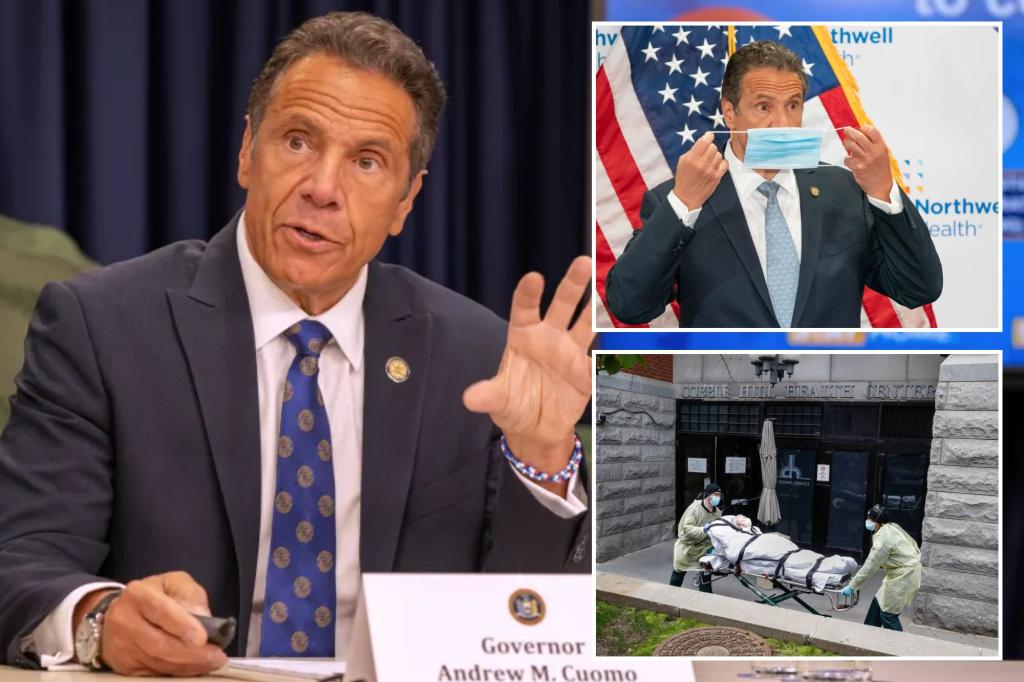Disgraced former New York Democratic Gov. Andrew Cuomo has agreed to testify before a panel of House lawmakers on June 11 to discuss his administration’s handling of the COVID-19 pandemic in New York nursing homes. This comes over a month after a subpoena was issued for his testimony by the Republican-led House Select Subcommittee on the Coronavirus Pandemic. Cuomo resigned in 2021 amidst several scandals, including allegations of a cover-up regarding COVID-19 deaths in nursing homes. The ex-governor denies that his administration’s policy requiring nursing homes to accept COVID-19-positive patients led to additional deaths, but a comptroller’s report found that such deaths were undercounted by over 50%.
Rep. Brad Wenstrup, chairman of the committee, expressed his interest in understanding Cuomo’s decision, stating that as a doctor, it goes against medical common sense to put highly contagious individuals among the most vulnerable. Wenstrup mentioned that his committee had reached out to Cuomo nine months ago, but the former governor had ignored many requests. A spokesman for Cuomo disputed Wenstrup’s claim, stating that the agreement to testify had been in place for months and pointing out that the issue had been reviewed multiple times by various authorities, including the Department of Justice, Congress, and the Manhattan District Attorney, with no conclusive findings of wrongdoing. The House panel also announced that Dr. Anthony Fauci has agreed to testify on the origins and government response to the pandemic on June 3.
Cuomo’s appearance before the House lawmakers is expected to shed light on his administration’s decision-making during the COVID-19 pandemic, particularly concerning its handling of nursing homes. The controversy surrounding Cuomo’s alleged cover-up of COVID-19 deaths in nursing homes has raised questions about transparency and accountability in government responses to the pandemic. The subpoena issued for Cuomo’s testimony indicates a bipartisan effort to uncover the truth about the situation and ensure that responsible parties are held accountable for their actions. Cuomo’s testimony will provide an opportunity for lawmakers to gain insight into the decisions made at the state level during a critical period of the pandemic.
The agreement for Cuomo to testify behind closed doors raises questions about the transparency of the process and the extent to which the public will be informed about the details of his testimony. The closed-door nature of the interview may limit the information that is shared with the public, leading to concerns about accountability and oversight. The timing of Cuomo’s testimony, coming more than a month after the subpoena was issued, suggests a reluctance on his part to engage with the committee. However, the statement from Cuomo’s spokesman indicates that the agreement to testify was made months ago, contradicting claims of reluctance on Cuomo’s part. The upcoming testimony by Cuomo and Fauci represents an opportunity for lawmakers to gather information on the pandemic response and hold government officials accountable for their actions.
The controversy surrounding Cuomo’s handling of the COVID-19 pandemic in New York nursing homes highlights the challenges faced by state and local governments in responding to public health crises. The questions raised about Cuomo’s decision-making and transparency serve as a reminder of the importance of accountability and oversight in governing during a crisis. The forthcoming testimony by Cuomo and Fauci will provide an opportunity for lawmakers to gain insight into the decisions made at the state and federal levels and ensure that lessons are learned for future public health emergencies. Ultimately, the testimony by Cuomo and Fauci represents an important step in the ongoing effort to understand the government’s response to the COVID-19 pandemic and address any shortcomings in the management of the crisis.


